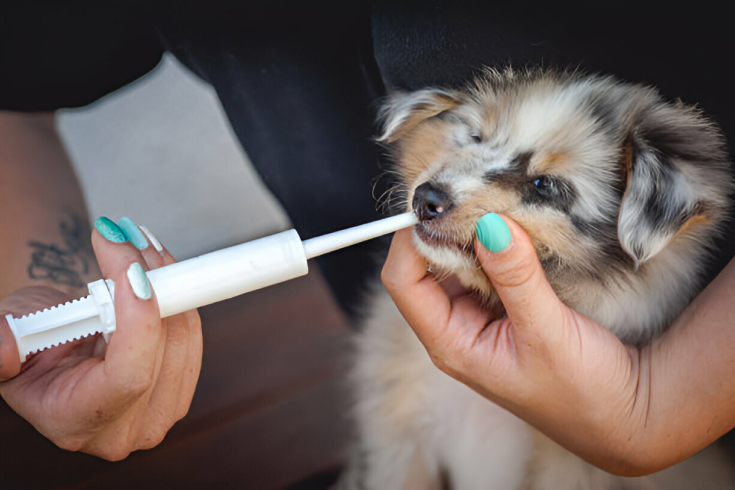Why should I worm my dog?
Worms are a common cause of ill-health in dogs and can cause symptoms ranging from loss of appetite, pot belly, vomiting and diarrhoea, coughing, anaemia and even death.
Dogs are affected by four worm types in New Zealand—roundworms, hookworms, whipworms and tapeworms.
Roundworms are a problem mainly in young animals. Ninety percent of pups are born with roundworm infestations acquired from their mother during pregnancy. The worms are greyish white in colour and have round bodies resembling an earthworm.
Although much smaller, hookworms can have a serious effect on a dogs health as they suck blood from the lining of the intestine. Whipworms resemble a stock whip and cause weight loss or diarrhoea.
There are various types of tapeworm. The most common is the flea tapeworm. This worm goes through a development stage in the flea. Infection occurs when a dog grooms itself and swallows an infected flea. Fortunately, the hydatid tapeworm these days is not common in dogs and can occur only when dogs are fed infected, uncooked sheep and goat offal containing cysts at the developmental stage.
Roundworms, tapeworms and hookworms can occasionally be a health hazard for people. Infection occurs simply by swallowing the eggs or larvae and naturally this is most likely with young children who are playing with puppies, or who are in a soiled environment. Regular worm treatment combined with simple hygienic measures such as ensuring young children wash their hands after contact with pets and particularly before eating, will minimize the risk of infection.
Puppies should be treated weekly between 2-6 weeks of age, fortnightly until 12 weeks, then regularly every 3 months for the rest of its’ life. Contact us for your vet or vet nurse to help advise which treatments are best.
Some people advise treatment of pregnant bitches throughout pregnancy. However as long as the bitch has been wormed regularly every 3 months and the pups are treated from 2 weeks of age there is no need to increase the worming frequency of the pregnant bitch. In fact, some worm treatments should not be given during pregnancy. It is always best to check with your vet first- contact us.
